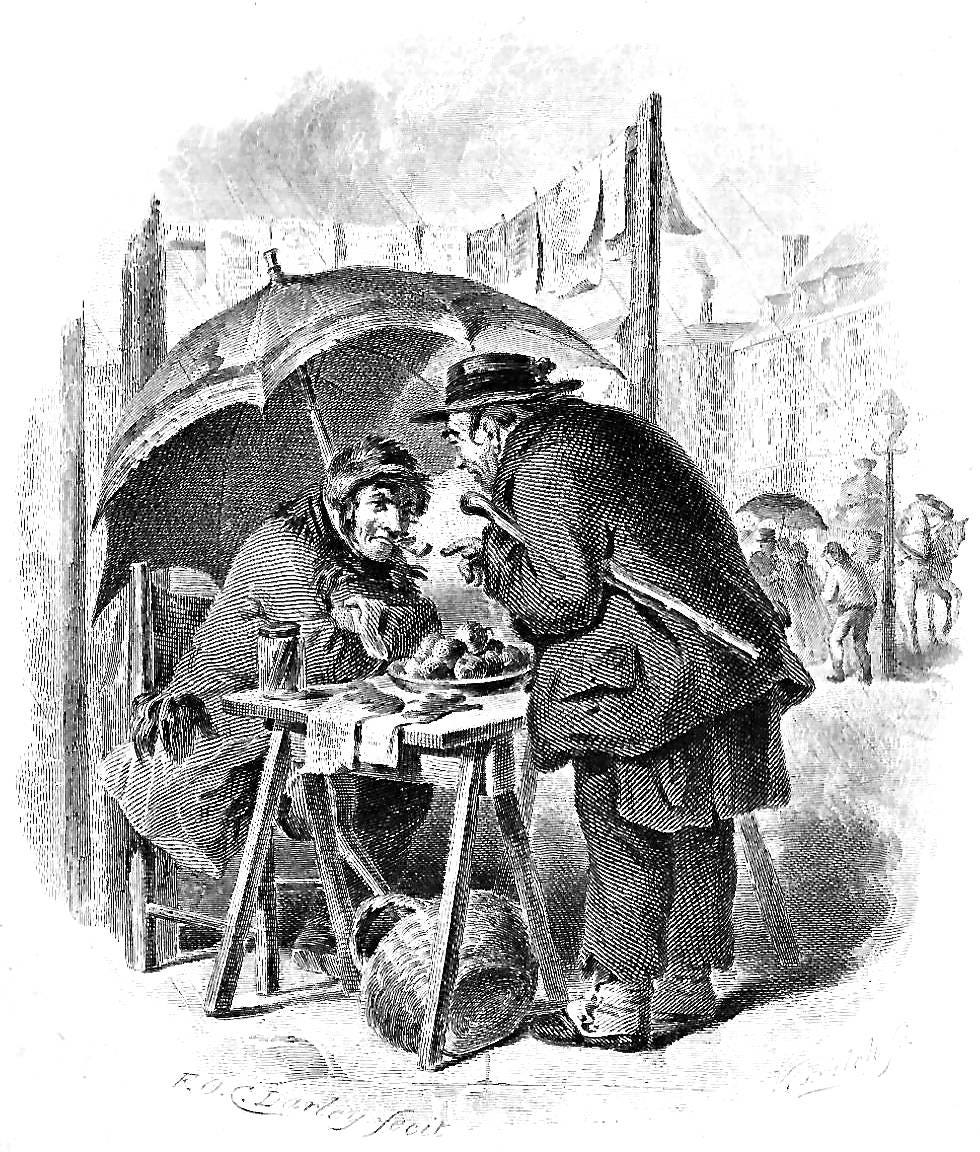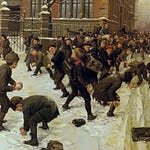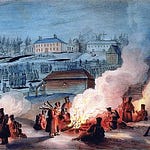Right now I’m re-reading one of my favorite novels, Charles Dickens’ Our Mutual Friend, and one of his happiest creations is Mr. Boffin, a portly old gentleman called “The Golden Dustman,” because he’s inherited from his greedy old employer a fortune in the business of our Word of the Week, dust. When I first read the novel, I wondered what the heck Dickens could be talking about. Huge mounds of dust surround the humble old residence of Mr. and Mrs. Boffin, where they’ve installed somebody to look after the place. That’s the sly villain Silas Wegg, “a literary man — with a wooden leg,” as Mr. Boffin, illiterate and innocent in the ways of evil men, describes him. Wegg stumps about the Mounds at night, searching for something valuable, especially something he might use against Mr. Boffin his benefactor, whom he hates. And I said to myself, “What else can you find in a huge mound of dust, but dust?” I didn’t know then that in British English, dust does double-duty for garbage: the dustbin is what Americans call the trash can. So he’s rummaging about immense piles of trash — dust.
Of course, Dickens had in mind the principal meaning of dust: it’s the little particles of matter, next to nothing at all, that show up floating in a sunbeam, and that settle on your furniture. Lily Munster of happy memory thus dusts her shelves in the same sense as does the man in the airplane dust the crops: she puts dust on them! But dust suggests what is insignificant, what things resolve into when all the life is out of them. The irony is that Mr. Boffin’s deceased employer had made his fortune in dust, meaning garbage, and what did it really profit him? He had no friends; he survived one unhappy daughter, and alienated his surviving son. It was all just so much dust, his wealth was, like the fine filmy remains of what used to be, slipping through your fingers.
Dickens understood too that if he used the word dust in any moral sense, all his readers would catch the hint. “Ashes to ashes, dust to dust,” says the preacher at the gravesite, and “you are dust,” says God to Adam, after the original sin of disobedience and pride, “and unto dust you shall return.” Those are not the last words Scripture has to say about our destination, far from it — but that’s an essay for another day. Even Our Mutual Friend is not about dust, unless that dust is the gold of human love and divine redemption.
Our word dust, of Germanic stock, sure has a lot of fascinating and surprising cousins. Its Indo-European root, dhewh-, having to do with smoke, shows up in the ancient Greek word thymos, meaning a vapor, or breath, and hence also spirit, so that if you’re all hot for the approach of baseball season, you are enthusiastic about it, on fire, smoking! Now, that original sound that became th- in Greek didn’t do the same in Latin. If you go to London right now and ask a Cockney speaker to read the words heaven and earth, he’ll rattle them off as ‘ev’n an’ earf, with the th turned to an f. That’s what happened in Italy. Greek thymos is close cousin to Latin fumus: smoke. The Latin word entered English through the Norman French as fume. So if you are on a French train and you see the sign DEFENSE DE FUMER, you’ll know that it’s not DEFENSE OF FUMES, but NO SMOKING. And maybe, if the ride is very long and you’re in a first class cabin, you will rest your weary head on a pillow stuffed with eider down — yes, down here is not a direction, but the dusty powdery fluff under the feathers of the eider duck. And then there’s the seasoning, in the old folk song: “Parsley, sage, rosemary, and thyme” — thyme, for the pleasantly smoky smell of it.
Word & Song is an online magazine devoted to reclaiming the good, the beautiful, and the true. We publish six essays each week, on words, classic hymns, poems, films, and popular songs. Paid subscribers also receive audio-enhanced posts, a weekly podcast (alternately Poetry Aloud or Anthony Esolen Speaks), access to our full archive of over 700 essays.
To support this project, please join us as a free or paid subscriber.













